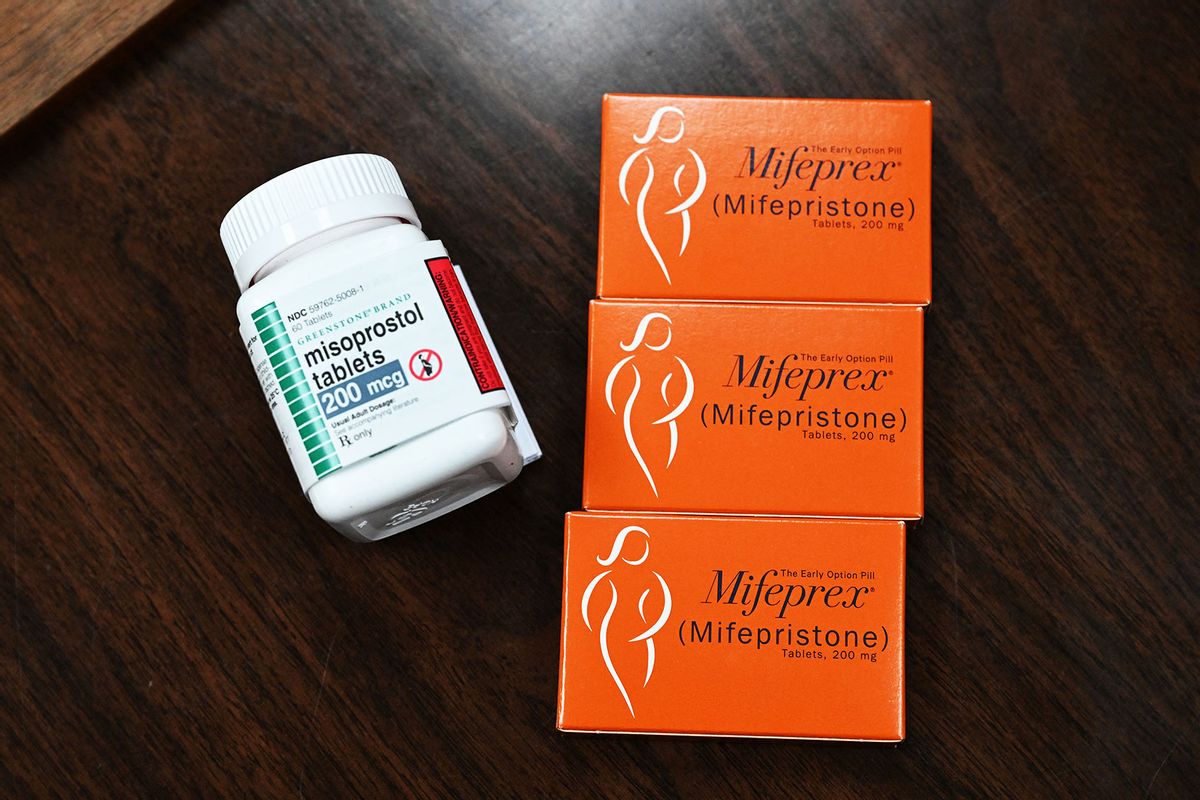Two Trump appointees on the 5th Circuit Court of Appeals issued a decision late Wednesday allowing parts of a Texas judge's widely denounced abortion pill ruling to take effect, a move that will restrict access to mifepristone as the case proceeds.
Judges Kurt Engelhardt and Andrew Oldham temporarily blocked the part of the Texas judge's ruling that would have invalidated the Food and Drug Administration's 2000 approval of mifepristone.
But the Trump appointees, whose nominations were vocally opposed by rights groups, said the Texas judge's order to suspend later agency actions that expanded access to the safe medication—including a 2021 decision allowing mifepristone to be distributed by mail—can take effect.
The two appeals court judges also halted 2016 changes that allowed the pills to be prescribed at up to 10 weeks of pregnancy instead of seven weeks. The judges argued the anti-abortion groups that sued the FDA last year brought a timely-enough challenge to the agency's later policy changes.
Catharina Haynes, a George W. Bush appointee and a member of the three-judge appeals court panel that issued the late Wednesday decision, dissented from the ruling, saying she would have paused U.S. District Judge Matthew Kacsmaryk's order in full.
The Biden Justice Department is widely expected to appeal to the U.S. Supreme Court, which ended the constitutional right to abortion last year. Democratic-led states, including California and Washington, have been stockpiling mifepristone in preparation for court rulings that limit access.
In 2020, more than half of all abortions in the U.S. were medication abortions, which are typically carried out using mifepristone in combination with misoprostol—though misoprostol can be used alone.
The appeals court panel's decision came after hundreds of Democratic lawmakers and reproductive rights groups filed amicus briefs warning that, if upheld, Kacsmaryk's order would have "perilous consequences" that "reach far beyond mifepristone."
"Providers and patients rely on the availability of thousands of FDA-approved drugs to treat or manage a range of medical conditions, including asthma, HIV, infertility, heart disease, diabetes, and more," 240 members of Congress wrote in their brief to the 5th Circuit Court of Appeals.
In a separate brief, the Center for Reproductive Rights and more than 100 other organizations argued that Kacsmaryk—also a Trump appointee—penned an order rooted in "debunked data" and packed with "anti-abortion rhetoric rather than scientific terminology."
"If the decision...takes effect, people even in states where abortion remains legal or protected will be denied access to mifepristone, imperiling access to abortion and jeopardizing the health of persons unable to timely obtain care," the groups wrote. "Neither science nor law supports this result."



Shares